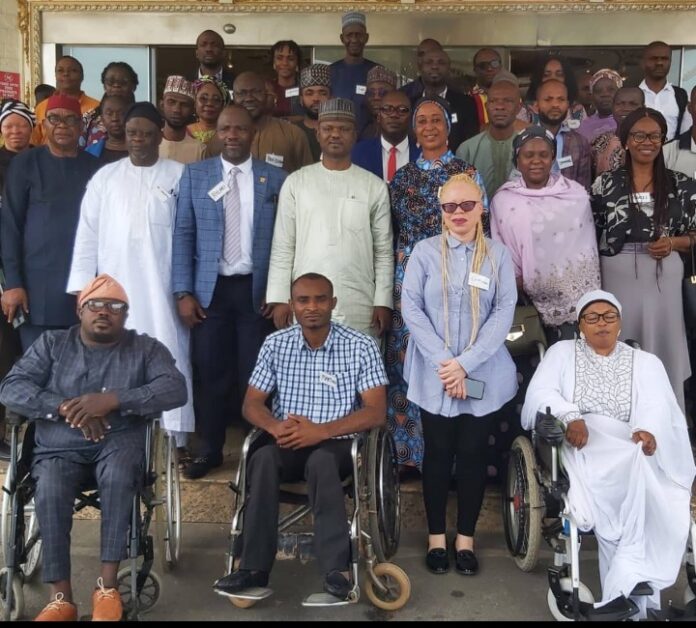Historically, persons with disabilities especially children with disability have experienced very poor access to basic and other levels of education in Nigeria and several research findings indicate that 40% of over 10 million out of school children in Nigeria are children with disabilities. This situation has been associated with inadequacies in school infrastructure, qualified and properly trained special and regular teachers, assistive teaching and learning aids, as well as very low public awareness on possibilities and processes of education children and Learners with disabilities.
James Lalu, the Executive Secretary of the National Commission for Persons with Disabilities (NCPWD ) decries the level of implementation of National Policy On Inclusive Education says eighty five percent of schools in Nigeria are not accessible to Persons with disabilities.
He disclosed this on Thursday while fielding questions from journalists on the sidelines of a two-day National Summit on Access to Education for Persons with Disabilities (PwDs) in Abuja.
The summit was aimed at establishing an evidence-based situation on implementation of inclusive education in line with relevant subnational, national and International legal and policy frameworks, Identify good inclusive education practices, procedures and opportunities at the levels of classrooms, school, community, service and caregiving, ministerial, and governance, Secure endorsement of the Web-based Community Of Practice On Inclusive Education (COMPIE) by stakeholders,Initiate the process of developing the National SOPs On Inclusive Education, Expand collaboration of Inclusive Education Stakeholders On a national scale and Initiate the establishment of biannual learning summit on Inclusive Education.
He explained that, lack of accessible learning environment, inadequate teacher-to-students ratio and lack of assistive devices were factors denying Persons with Disabilities access to education. ”When you look at our schools in Nigeria, I can rightly say that about eighty five to ninety five per cent are not accessible to persons with disabilities.
”Because structures are being raised on daily basis by federal, states and local governments that do not conform with the Minimum Accessibility Standards for Persons with Disabilities to access.”
It is part of our mandate which was properly captured in Section 2 to 15 of the discrimination against Persons with Disabilities Prohibition Act 2018″ he said.
He said, the commission had come up with a national regulation on accessibility which ensures a new dimension and standardisation on accessibility of facilities across public buildings in Nigeria.
Lalu also decried the growing inadequacy in terms of teachers to students ratio as part of issues against access to education for Persons with Disabilities.
It is part of our mandate which was properly captured in Section 2 to 15 of the discrimination against Persons with Disabilities Prohibition Act 2018″ he said.
He said, the commission had come up with a national regulation on accessibility which ensures a new dimension and standardisation on accessibility of facilities across public buildings in Nigeria.
Lalu also decried the growing inadequacy in terms of teachers to students ratio as part of issues against access to education for Persons with Disabilities. He expressed optimism that with the commitment of stakeholders Nigeria would achieve inclusive education for children with Disabilities.
”I think inclusive education is something that we can achieve, if we can come together with all partners. I believe we can achieve the educational goals and the outcomes that we expect for Nigerian education sector” he said.
Prof. Paulinus Okwelle, the Executive Secretary, National Commission for Colleges of Education (NCCE), pledged to support efforts of the commission towards strengthening access to education for children with disabilities.
According to him, ”Many countries including Nigeria, have a means of exemption of equal accessibility to quality education for persons with disabilities. ”Specifically, international policy on education stipulates that education must be delivered to all without any form of discrimination.
”Nigeria has arrangement with the United Nations to provide access to education for persons with disabilities with concrete efforts having the merits to implement it with special attention to inclusiveness” he said.
Our correspondent also reports that stakeholders at the event were unanimous on the need to collaborate with relevant national and International organisations to achieve better outcomes for children with disabilities in Nigeria.


